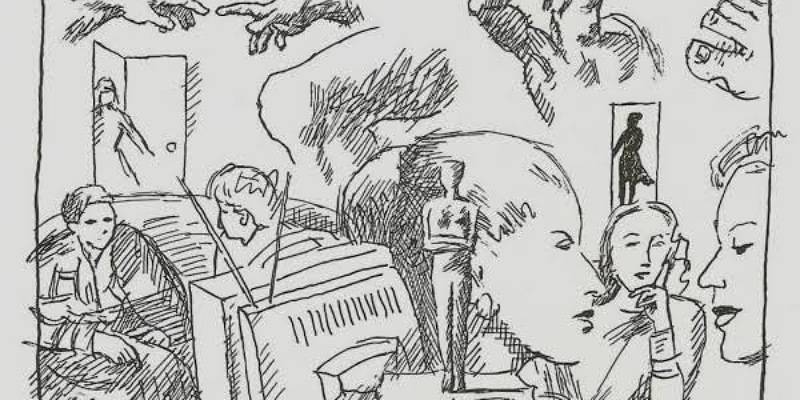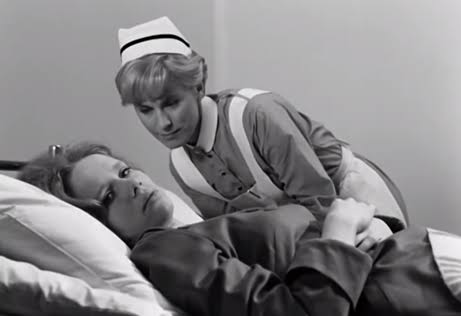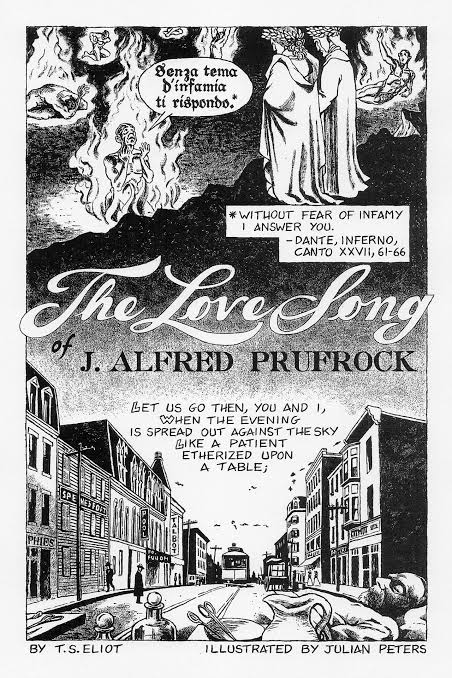
There’s the literal suicide - a physically committed act Philosophy indulges in answering if it is moral, preventable, or can it be justified - however, what about the non-literal, or metaphoric suicide? When poets and artists delved into the subject portraying it without following its dictate, they dipped into its waters and yet lived on - what kind of mental state were they tempted to court? It is rather like a simulated ride into the black-hole, which one experiences and yet it is not the real thing. So, in a metaphoric suicide, what does one experience in place of actual death? How is this rather make-believe encounter dealt with? Is it significant at all?
When Shakespeare's Hamlet declares "To be or not to be, that is the question" he also rationally lists all of the pros and cons of either decision. In the interpretation that this deals directly with the question of life and death, he muses over the possibility of taking his life. After all, "to take arms against a sea of troubles. And by opposing end them." And further, “'Tis a consummation. Devoutly to be wished." In a rather open-minded context, he frankly considers the option. Does this very process - of mentally acknowledging a suicidal desire, formulating it, leaning towards it - have an effect on who Hamlet is? Is his procrastinating self, tainted in anyway by such thoughts?
In Bergman's Persona, a strange occurrence takes place. A famous actress, who otherwise, has no medical record of any illness, suddenly one day on set, smiles enigmatically, and then stops talking.
No matter what anyone does to provoke Mrs. Volger to break the unreasonable vow of silence, they stand defeated. Her doctor professes to understand the case, and cryptically asserts to the mysteriously silent woman:
In the entire movie, Mrs. Volger then does not communicate with words, and she has in a way committed language suicide. How does it affect her psychologically? The doctor seemed to suggest that it is rather unfashionable to actually commit suicide. In this way, Mrs. Volger lives on to see the impact of her actions on people. Literal suicide too comes with destructive reactions, frustration, sense of loss and ambiguity - and all these are reactions to Mrs. Volger's refusal to live naturally as well. She has in a way succumbed to a death of her former life in the film, as she leaves work and goes to live in a far off setting with a nurse. Her metaphoric suicide is reminiscent of Sylvia Plath's lines from Lady Lazarus:
She has in a way succumbed to a death of her former life in the film, as she leaves work and goes to live in a far off setting with a nurse. Her metaphoric suicide is reminiscent of Sylvia Plath's lines from Lady Lazarus:
What kind of a call is this? Why have poets and artists been seduced by this call? And whilst living, how do you ‘die’ without dying? In one sense, we could understand it as some phenomena that when one undergoes some traumatic life event, or encounters an addictive sadness, one is unable to not pursue this path of the death without dying. However, Plath’s Lady Lazarus lines seem to assert this as a talent, as some sort of fire-eating stunt, a risk taken on life itself which gives a high of sorts. A high that one gets out of a thrilling motorbike ride, or playing a dangerous sport.
The same idea is reiterated in Emily Dickinson’s lines: “I felt a Funeral, in my Brain, /And Mourners to and fro/ Kept treading – treading – till it seemed/ That Sense was breaking through.” Again we get that same sense of a dangerous collaboration with the forces and thought-process of suicide without taking the necessary action. This is kind of a limbo state – one is neither fully present to being alive, nor is one going to die. It is the dance with death. Dickinson can feel the funeral taking place, and she can imagine all the mourners. This also raises the important question – is the life of the imagination actually real or a pseudo-reality because it lacks physical proof?
When T.S. Eliot ponders over the life of the mind in Love Song of J. Alfred Prufrock, the narrator makes sure that we understand the significance of disturbing the universe: “Do I dare/ Disturb the Universe?” He does not know how to break out of his inward life and actually dare to plunge into the real world. Prufrock, then, is the epitome of the modern example of a man lost in the world of imagination. The last line brings us back to the question of death: “Till human voices wake us, and we drown.” Thus, breaking into ‘reality’ as opposed to the life of the mind, would cause the narrator to drown. This interior state in T.S. Eliot’s work, is murky and metaphoric suicidal both because he does not step into the real life encounter, and also because he continues to live in a dead-to-the-world state.
I’d like to end with the lines by Langston Hughes, who writes in Suicide’s Note:
There is an evident romance with the notion of suicide in these lines. The kiss of death and the plunge into the waters. Contemplating suicide seems to be dallying with the senses of time, life’s futility, a chaotic world or personal trauma.
In a way, to enter a metaphoric suicide is to summon it, like in the case of Hamlet, to embody and live it in an icy silence as in Persona's Mrs. Volger, to think of it as an art, like in Lady Lazarus, to undergo it as a ceremony as does Dickinson’s poem, to live it as a tendency against facing life as in Prufrock’s case or to flirt with it as does Hughes’ poem. These few examples from literature and film thus offer us some very interesting insights into what I call “metaphoric suicide.”
When Shakespeare's Hamlet declares "To be or not to be, that is the question" he also rationally lists all of the pros and cons of either decision. In the interpretation that this deals directly with the question of life and death, he muses over the possibility of taking his life. After all, "to take arms against a sea of troubles. And by opposing end them." And further, “'Tis a consummation. Devoutly to be wished." In a rather open-minded context, he frankly considers the option. Does this very process - of mentally acknowledging a suicidal desire, formulating it, leaning towards it - have an effect on who Hamlet is? Is his procrastinating self, tainted in anyway by such thoughts?
In Bergman's Persona, a strange occurrence takes place. A famous actress, who otherwise, has no medical record of any illness, suddenly one day on set, smiles enigmatically, and then stops talking.
No matter what anyone does to provoke Mrs. Volger to break the unreasonable vow of silence, they stand defeated. Her doctor professes to understand the case, and cryptically asserts to the mysteriously silent woman:
"Commit suicide?
That's unthinkable.
You don't do things like that.
But you can refuse to move
and be silent.
Then, at least,
you're not lying."
In the entire movie, Mrs. Volger then does not communicate with words, and she has in a way committed language suicide. How does it affect her psychologically? The doctor seemed to suggest that it is rather unfashionable to actually commit suicide. In this way, Mrs. Volger lives on to see the impact of her actions on people. Literal suicide too comes with destructive reactions, frustration, sense of loss and ambiguity - and all these are reactions to Mrs. Volger's refusal to live naturally as well.
 She has in a way succumbed to a death of her former life in the film, as she leaves work and goes to live in a far off setting with a nurse. Her metaphoric suicide is reminiscent of Sylvia Plath's lines from Lady Lazarus:
She has in a way succumbed to a death of her former life in the film, as she leaves work and goes to live in a far off setting with a nurse. Her metaphoric suicide is reminiscent of Sylvia Plath's lines from Lady Lazarus: "Dying
Is an art, like everything else.
I do it exceptionally well.
I do it so it feels like hell.
I do it so it feels real.
I guess you could say I've a call."
What kind of a call is this? Why have poets and artists been seduced by this call? And whilst living, how do you ‘die’ without dying? In one sense, we could understand it as some phenomena that when one undergoes some traumatic life event, or encounters an addictive sadness, one is unable to not pursue this path of the death without dying. However, Plath’s Lady Lazarus lines seem to assert this as a talent, as some sort of fire-eating stunt, a risk taken on life itself which gives a high of sorts. A high that one gets out of a thrilling motorbike ride, or playing a dangerous sport.
The same idea is reiterated in Emily Dickinson’s lines: “I felt a Funeral, in my Brain, /And Mourners to and fro/ Kept treading – treading – till it seemed/ That Sense was breaking through.” Again we get that same sense of a dangerous collaboration with the forces and thought-process of suicide without taking the necessary action. This is kind of a limbo state – one is neither fully present to being alive, nor is one going to die. It is the dance with death. Dickinson can feel the funeral taking place, and she can imagine all the mourners. This also raises the important question – is the life of the imagination actually real or a pseudo-reality because it lacks physical proof?
When T.S. Eliot ponders over the life of the mind in Love Song of J. Alfred Prufrock, the narrator makes sure that we understand the significance of disturbing the universe: “Do I dare/ Disturb the Universe?” He does not know how to break out of his inward life and actually dare to plunge into the real world. Prufrock, then, is the epitome of the modern example of a man lost in the world of imagination. The last line brings us back to the question of death: “Till human voices wake us, and we drown.” Thus, breaking into ‘reality’ as opposed to the life of the mind, would cause the narrator to drown. This interior state in T.S. Eliot’s work, is murky and metaphoric suicidal both because he does not step into the real life encounter, and also because he continues to live in a dead-to-the-world state.

I’d like to end with the lines by Langston Hughes, who writes in Suicide’s Note:
“The calm,
Cool face of the river
Asked me for a kiss.”
There is an evident romance with the notion of suicide in these lines. The kiss of death and the plunge into the waters. Contemplating suicide seems to be dallying with the senses of time, life’s futility, a chaotic world or personal trauma.
In a way, to enter a metaphoric suicide is to summon it, like in the case of Hamlet, to embody and live it in an icy silence as in Persona's Mrs. Volger, to think of it as an art, like in Lady Lazarus, to undergo it as a ceremony as does Dickinson’s poem, to live it as a tendency against facing life as in Prufrock’s case or to flirt with it as does Hughes’ poem. These few examples from literature and film thus offer us some very interesting insights into what I call “metaphoric suicide.”
